 The Great Decisions Speaker Series brings national experts to West Michigan for thought-provoking discussions on eight critical and important global issues. The series, which kicked off on February 11, includes a list of experts on topics the whole world is talking about. The Great Decisions Global Discussion speaker series is put together by the World Affairs Council of Western Michigan and is live-streamed at the Dogwood Center for Performing Arts on Tuesdays, through March 31, 12 noon to 1:00 p.m. on the main stage. The goal of the series is to discuss eight critical issues that are facing the world today, and features diplomats, policy makers, practitioners, think tank specialists and journalists using their diverse expertise to lead conversations. Climate change, human trafficking, the Philippines and the U.S., and artificial intelligence are a few of the global issues in the series. “Our organization’s perspective on this series is that to change the world — or to even begin to understand global issues — one first must know about the world, and that’s what we attempt to do with Great Decisions,” Michael Van Denend, executive director of the World Affairs Council of Western Michigan. The March 3 speaker topic will be “'Green Peacebuilding': Justice in the Face of Climate Change" and on March 10, "Human Trafficking: Global and Local Perspectives". The Great Decisions Speaker Series will be video streamed live at the Dogwood Center, 4734 S. Campus Court, Fremont, from 12:00 p.m. – 1:00 p.m. Tuesday's through March 31. The lectures are free and open to the public. View the speaker schedule at www.dogwoodcenter.com. or www.worldmichigan.org.
0 Comments
An Open Letter to the Honorable Jon Bumstead in Support of George Heartwell, Natural Resources Commission Chair Appointee: Thank you, Senator Bumstead, for supporting George Heartwell’s appointment as Natural Resources Commission Chair. I know you stand alone among fellow Republican Senators on this, as you did with Michigan Republican Senators who voted to reject Ann Mitterling’s NRC appointment. As Newaygo County residents, we know that Mr. Heartwell’s passion and tireless work for the environment would be the driving forces of any decisions he would make as an NRC Commissioner. He also has expressed his respect for the 2nd Amendment, seeking only to assure the safety of our community members in the past as Mayor of Grand Rapids, NOT in pursuit of taking anyone’s right to bear arms in a responsible manner. The fact that members of the NRA and Republican Senators are mixing these two issues in his appointment is not only moot, but is distasteful heavy handed partisanship as well. I urge all Michigan residents to contact their State Senators NOW to support Mr. Heartwell’s appointment. In particular, we need to voice strongly this support to our Republican Senators who would consider voting against his appointment for fear of losing financial support from the NRA, or loss of votes from Great Lakes Gun Rights citizens who are swallowing erroneous statements about Mr. Heartwell taking away people’s guns. (Note: loss of financial support and votes can go the other way as well, and elections are on the near horizon). As Mr. Heartwell stated in a recent mlive interview, he grew up hunting and is comfortable around guns. Plus, as he said, the board isn't in charge of guns. “So, for those who think that I’m going to somehow have the authority here on this board to do something about firearms, I really don’t. This is about hunting and fishing regulations and has little or nothing to do with firearms, other than in the use of taking species.” George Heartwell is known for reaching across political aisles and community divides to find common ground. His passion for outdoor recreation enjoyed by us Michiganders, as well as support for hunting and fishing habitat conservation, makes him an ideal NRC community representative. Creating division among partisan lines with regards to his appointment will only weaken the important work that the NRC must do. And perhaps even more damaging, will continue to reinforce and widen the political divide that is turning citizens and their representatives against each other, instead of respecting and working with each other. Again, thank you Senator Bumstead for following the truth in your support of George Heartwell. Sally Wagoner 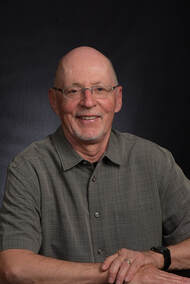 By Tim McGrath “Why would anyone actually want to spend a weekend sitting in the dirt?” – Anonymous (But you know who you are…) Indeed. Camping was a part of life growing up. Our family wandered from Ludington State Park to the National Forest campgrounds secreted across the UP and many points in between. Those were the golden days of childhood spent fishing, swimming, bike riding, and sneaking Dad’s cigars. We cooked up our own ridiculous versions of outdoor games, some of which involved trying not to get skewered with the newly acquired Jarts. There were hobo dinners enjoyed around the campfire, while Dad plucked out old timey country ballads on his battered Gretsch. Sadly, those days ended with graduations, colleges, jobs, and other responsible adult things. Like a Phoenix rising from the ashes of those long-ago campfires, though, we had the good sense to resurrect camping when our own kids came along. The best news is we found other friends who decided to also begin this tradition with their families. The stage was now set for new adventures in the great outdoors. For those who’ve camped with kids, it’s always a hoot to watch how their creative juices begin to flow when they finally realize there’s no TV, internet, or impossibly boring adult-oriented stuff they have to do. It’s infinitely entertaining to watch and listen as group-think-kid-style comes to life and the crazy ideas start to bubble up and unfold. Mind you, the adults in question had one eye (and ear) on the shenanigans unfolding, but as long as there wasn’t an overabundance of blood, vomiting, or serious injury involved, the kids could get on fine by themselves. Like now…. “Hey, Uncle Tim. Want to watch us try and catch Beach Chickens?” Joel and Karl asked one sultry August afternoon. “Beach Chickens? OK, now I need to know. What in the heck are Beach Chickens, and how do you catch them?” I innocently asked. Knowing grins, looks, and winks from the boys. “Come on, follow us to the beach, we’ll show you. You’re going to love this.” Joel said. Carefully scanning the campsite to see if their mom was watching, they popped into the camper and returned with what they called “The Stuff”: a large bed sheet and half-eaten bag of Cheetos. “That’s it?” I asked. I almost asked if they’d cleared the bed sheet idea with their mom, but decided against it. I was now in on the scheme, and to even consider squealing on them would be heresy. “Yup, that’s it. Are you ready?” They were getting impatient with my piffling around. “OK, you two get in the van, and I’ll let the others know we’re going to the beach for a while,” I said. Muskegon State Park beach was hopping this scorching August afternoon. Families encamped in little huddles close to the water, young guys with no shirts tossing footballs hoping to catch the eye of one of the bikini-clad girls, kite fliers, little kids with droopy water-logged diapers building drip castles next to the water, crying when a rogue wave obliterated their creations. And, everywhere were the flocks of gulls, some floating effortlessly in the breeze, some screeching their irritation at one another, some picking up garbage from the beach for a light afternoon snack. Suddenly, a little light went on. “Gulls are Beach Chickens, right?” I said to the boys. “And you two are going to try and catch one.” Duh. “We are. Almost got one yesterday, but just missed it. Hey, there’s a spot over there by the dune, nobody’s there. Come on, let’s go!” They raced to the perfect place, and immediately set to work. I gathered all my responsible-dad-beach-gear and waded across the volcanic sand toward them. As soon as I came within about 25 yards of the project they immediately stopped, held up a hand, and motioned for me to stay where I was. They were digging what looked like a shallow trench in the sand. When the trench was just the right dimensions, they carefully spread the dug sand around the area so it would look as natural as possible. Karl then lay down on his back in the trench, and Joel covered him with the sheet. Taking the bag of Cheetos, he tossed several on the sheet about where Karl’s stomach was, then put a few enticers on the sand around the Beach Chicken trap. Looking at the scene, I had to admit it was ingenious. Had to wonder, though, if the boys had considered what might happen if they actually snared one. Gulls have long sharp beaks, and those wings are big, strong and bony. I don’t imagine a trapped one would take kindly to being caught. Ah well, live and learn. Plus, what are the chances…? Joel surveyed the scene and satisfied with their engineering walked over and sat down by me. “OK, Joel, how does this whole thing work?” I asked. “Just watch, it won’t be long!” he chuckled. As if on cue, gulls lured in by the tasty looking iridescent orange Cheetos started hovering over the area. Several of the braver ones landed a few feet from the trap eyeing it carefully, on the lookout for any funny business. One by one the gulls walked closer, plucked a Cheeto lying on the ground and gobbled it down. Then it happened. “Karl, there’s one getting set to hop on the sheet, get ready,” Joel quietly called. The gull walked onto the sheet. “OK, he’s on you. Go!” Instantly, Karl sat straight up throwing the sheet over the gull trying to trap it in the folds. “Got it!” he screamed. His aim was slightly off kilter, and he had only part of the gull. As predicted, the gull wasn’t having it. Finding its mark on his hands and arms, its beak pecking like a jackhammer, the one free wing beat Karl soundly about the head and shoulders. “Help, help, it’s eating me alive! I don’t want it to peck my eyes out!” “Let go, Karl, let go!” we hollered. He fell back in the pit, and the gull sprang up, flew away, screeching its annoyance at the interruption to a perfectly good snack time. The ride back to the campground was a quiet one. Surprisingly, there were only a few red marks on Karl’s face from the wing, and a couple scratches on his arms and hands. The upside was he still had both eyes. He’d also kept his good humor about the whole thing. “Well, that was sort of fun, too bad it got away,” he said. As we pulled back into the campsite, Karl called out. “Hey, Joel, I’ve been thinking, and I got this really great idea. Wouldn’t it be awesome if we could catch squirrels using our fishing poles? All we have to do is take off the hook, and then tie a peanut onto the line. Cast it out by one of them, and let them take the bait. They wouldn’t get hurt, but I can just imagine playing a big squirrel as he runs around trying to get the peanut off the line. Could be way more fun than real fishing. Squirrels don’t bite, do they?” Kids and camping… good times, good times. To the Editor: Enough is enough. Let’s not stumble into war with Iran. It should be a top priority for Congress to correct its historic blunder of passing the buck when it comes to war and peace. I was relieved to hear that the House of Representatives voted to repeal the 2002 Authorization for the Use of Military Force (AUMF) (for the war in Iraq). I am hopeful that with the votes of Senators Peters and Stabenow, the Senate too will also soon vote to repeal the authorization, which has been used frequently to justify unrelated and unauthorized military activity. Most recently it was used to assassinate an Iranian official with a drone strike. Such a dangerous escalation could easily have brought us into a war. It already caused a plane explosion killing 160+ innocent lives as well as strikes on two bases which injured many US soldiers in Iraq. I encourage Senators Peters and Stabenow to make public statements to make certain that Congress takes back its authority to be involved in war-making decisions and to be certain we do not go to war with Iran. We ask them to vote for Sen Tim Kaine’s Iran War Powers Resolution (SJ Res 68) Act and Bill S-3159 to prevent funding for such a war. Enough of our involvement in the Middle East! Dawn Bushouse Member of the Friends Committee on National Legislation West Michigan Advocacy Team Become a Nature Sanctuary Steward and help our native habitats thrive
By Sally Wagoner We are lucky here in Newaygo County, for there are growing programs and growing interest in protecting our fragile native ecosystems. And you can help be part of this movement by becoming a Nature Sanctuary Steward and Volunteer. These Newaygo County Nature Sanctuaries are seeking volunteers for upcoming habitat restoration days: * Tuesday, February 11, 10am-1pm, Karner Blue Nature Sanctuary, Spruce Avenue south of Croton Drive. * Tuesday, February 18, 10am – 1pm, Brooks Prairie, between Newaygo and Croton, on Middle Drive, 1/3rd mile south of E. 56th St, east side of road. * Friday, February 21, 10am - 1pm, Newaygo Prairie, South East corner of S Poplar Ave & E. 56th St., Newaygo. To register for the workdays of your choice, contact Robb Johnston, Michigan Nature Association Regional Stewardship Manager: [email protected]; (517) 643-6864. “Our main management goal at these sites is to provide habitat for the endangered Karner Blue Butterfly, states Robb. “Newaygo County has a mosaic of Karner Blue populations and we are trying to create more space for them by encouraging growth of wild lupine (their host plant) and nectar sources (their food).” As a volunteer, you will help with cutting and hauling invasive trees and bushes, and possibly burning brush piles. Tools will be available on site. Volunteers are urged to wear boots and warm layers of clothing depending on the weather. As a Steward of these Nature Sanctuaries, you will be a protector, an educator, a champion and a warrior in helping our native plants, animals and pollinators to thrive. “Our current focus at these Sanctuaries is to prevent shrubs and trees from encroaching into the prairie,” continued Robb. “By controlling the spread of invasive species, trees and shrubs (mostly honeysuckle, black cherry, and red pine), we allow more sunlight to reach ground level, which encourages the growth of the plants Karner Blue butterflies need”. School youth groups are eagerly sought to help with restoration projects, and to become Stewards of these Nature Sanctuaries. Group leaders and teachers are urged to contact Robb Johnston for information. Native species of bees, butterflies, moths, bats and other pollinators are diminishing, and some are threatened with extinction if there is no intentional intervention. Loss of native habitats are a major cause of pollinator demise due to the growth of human communities, deforestation and unsustainable forest management, land use changed to agriculture, pesticides, herbicides, pollution and climate change. Disruptions of these original balanced ecosystems are affecting food systems not only for our native animals and insects, but for people as well. Loss of insects means loss of pollination of grasses, plants, fruit and nut trees, which diminishes food supplies for turkeys, deer, bear and people. Loss of pollinators also affects agricultural success in our home gardens as well as large farms. Habitat conservation programs help communities, homeowners, farmers and growers increase native plant restoration on state lands, as well as private property. Farmers can get yearly payments from the federal government if they plant environmentally beneficial plants instead of crops on parts of their land. Information on this can be found at the USDA website, under Conservation Programs, or contact the local Newaygo Conservation District for help. Stewardship of a local Nature Sanctuary can do all of the beneficial things for our eco-systems mentioned here. But stewardship can also do something perhaps less tangible, but with a broader rippling effect: stewardship of our local Nature Sanctuaries gives us the opportunity to develop a personal relationship with nature and the “other-than-human-beings”. Many who have studied our current species and habitat collapse state that this is at the heart of environment restoration and the healing of the Earth. So when you come to one of the Nature Sanctuary volunteer days, before getting out the saws and pruners, try starting with this: Greet the Sanctuary and all the ‘other-than-human-beings’ when you arrive. Introduce yourself, and tell them why you are there – intending to help the struggling native plants and insects by removing plants that crowd out their natural sources of sustenance. Ask for their guidance as we humans work to the best of our ability to restore some of the damage that we have caused. Plants, animals, insects and the land itself are all aware of “presence” and “activities”, and they respond to communication. We all come from a heritage of living close with the earth and our “other-than-human-being” relatives. When we reach out with intention, then pause and listen, we are then able to learn. That is when the relationship begins. That is when reciprocity occurs. From our friends at Morrison Orchards
Thank You to Our Community The generous spirit of our local community and beyond is always a lovely thing to witness. As I began our Australian bushfire relief fundraiser, I had no real idea how much I might collect. Friends, family, local area people I know, as well as complete strangers, generously have given. The goal was to collect funds to go directly to serve the needs of starving and injured animals, as well as to ease the suffering and financial losses of those who lost their homes and properties to the fires and were in immediate need. Grateful to have our friend, Rylan Edmistone, who lives in the fire stricken area of Budgong, New South Wales on the eastern side of Australia, I am happy now to share where the money has been put to work. As donations continued to arrive, I made three money transfers to him over the past month. Sent to date was a total of $5022 which equates to $7,265 in Australian currency. Half of the money is going to animal relief efforts and half to aid people. On the animal front, funds are continuing to sustain purchases of food pellets and fruit that Rylan and an area volunteer group are placing at food/water stations for kangaroos, wallabies, wombats, gliders, and other mammals and birds. Also some of the money has gone to a Kangaroo Valley area non-profit wombat rescue center whose efforts and need for funding have risen greatly with the injured wombats arriving in need of care. On the human front, money has been distributed to three groups – a portion to the local Budgong community to aid people who have lost their homes, a portion to nearby Illaroo Farm, a center for Aboriginal Australian culture which lost virtually everything due to fire, and a portion to the Firesticks Alliance, an Aboriginal Australian group, to aid in their continued work in promoting, sharing, teaching, and conducting ancient cultural burning practices which may be a viable means of reducing the enormous fuel loads of future fires. My gratitude is enormous for those of you who so generously donated to help these efforts. It is good to know that the money is at work already and not held up in the red tape that often keeps donations from being put to work where and when needed the most. I am grateful, too, for the invitation from Shari Paulsen to speak at the Fremont Rotary meeting to share information about the tragedies of the bushfires, and I am grateful for that double edged sword - online social media – a force for good and evil, but in crisis like the ongoing Australian bushfires. It has been a godsend to the Australian people who have shared critical information and offered help to one another throughout their time of great need. It also has been a force for good in allowing me to spread the word that I was collecting donations. Hearing directly from people who have been affected by our collective giving, it is clear that they are truly grateful and it means a lot to them that we, on the other side of the world, are concerned for their well-being. I will be making another wire transfer of money sometime around Valentine’s Day and again at the end of February. If you are interested in helping, please feel free to send a donation to: Kathy Morrison 6128 S Maple Island Rd Fremont, MI 49412. You can see the original posts and updates for the fundraiser on our Morrison Orchards Facebook page. Again, thank you for following the fundraiser posts and for opening your hearts and wallets for the victims of the Budgong/Kangaroo Valley area of Australia. Kathy and John Morrison Morrison Orchards The Great Decisions Speaker Series brings national experts to West Michigan for thought-provoking discussions on eight critical and important global issues. The series kicks off on February 11 and includes a list of experts on topics the whole world is talking about. The Great Decisions Global Discussion speaker series is put together by the World Affairs Council of Western Michigan and will be live-streamed at the Dogwood Center for Performing Arts on Tuesdays, February 11 through March 31, 12 noon to 1:00 p.m. in the main stage. The goal of the series is to discuss eight critical issues that are facing the world today, and features diplomats, policy makers, practitioners, think tank specialists and journalists using their diverse expertise to lead conversations. Climate change, human trafficking, the Philippines and the U.S., and artificial intelligence are a few of the global issues in the series. “Our organization’s perspective on this series is that to change the world — or to even begin to understand global issues — one first must know about the world, and that’s what we attempt to do with Great Decisions,” Michael Van Denend, executive director of the World Affairs Council of Western Michigan. The Great Decisions Speaker Series will be video streamed live at the Dogwood Center, 4734 S. Campus Court, Fremont, from 12:00 p.m. – 1:00 p.m. Tuesday's, from February 11 through March 31. The lectures are free and open to the public. View the speaker schedule at www.dogwoodcenter.com. or www.worldmichigan.org. 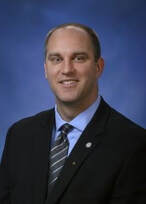 State Reresentative Scott VanSingel State Reresentative Scott VanSingel Rep. VanSingel offers his take on the bond proposal Governor Whitmer delivered her state of the state message last week. Much of the focus was on her plan to fulfill her campaign promise to ‘fix the damn roads’. She unveiled a $3.5 billion bond proposal that would bypass the legislature who turned down her initial proposal to raise the gas tax by 45 cents a gallon. From her speech: “Our roads are dangerous, and the longer we wait, the more expensive it will be to fix them.That’s why I’m taking action now to fix the damn roads and keep Michiganders safe. My Rebuild Michigan plan will ensure we start moving dirt this spring and save us money in the long run. But if we’re going to fix all the dangerous roads in Michigan, Republicans need to step up and get serious about finding a long-term road funding solution for our local roads and bridges. I’ll work with them when they’re ready, but in the meantime, I’m going to get to work fixing our state roads on my own.” The roads getting fixed under the governor’s plan will be high volume freeway and non-freeway roads with the greatest economic impact and more average passenger vehicles per day. A press release from CRAM (County Road Association of Michigan) indicates less than enthusiastic support from the organization: The County Road Association of Michigan has called any road funding solution that does not provide additional dollars for local roads a woefully incomplete answer to the situation with Michigan roads. “While not in a position to evaluate what is widely expected to be $3-plus billion in bonds for state trunkline projects – which comprise a mere 8% of Michigan’s road network – this actionable proposal from the Governor entirely leaves out the local and primary road network,” said Denise Donohue, director of CRAM, whose members are the 83 county road commissions and departments across the state. N3 asked State Representative Scott VanSingel for his reaction to the bonding proposal. "I was both encouraged and disappointed by the governor's state of the state address Wednesday. The governor and I share a common interest in improving and expanding education in Michigan, particularly her goal of reaching a workforce in which 60% of adults have a college degree or certificate. As chairman of the Higher Education committee in the House of Representatives, I have personally pledged my support to help reach this goal. Unfortunately, the governor's willingness to work with the legislature to obtain our shared goals seems to end there. “Michigan was hit particularly hard during the last recession and was in very poor financial condition. We have spent roughly the last 10 years trying to dig out of debt, rebuild our rainy day fund, improve our badly neglected infrastructure, and in general improve our state's financial condition. The governor's proposal to borrow $3.5B by issuing bonds reverses this course and furthermore undermines the checks and balances on the branches of government as it is being done without any input from the legislature. “While nearly all of us agree that more money is needed for road repairs, it is essential that the funds be invested in an equitable manner, that is distributed around the state fairly, and that we pay for these repairs in cash. Under the current proposal very little if any of this money will be spent in this district. Furthermore, borrowing money for a depreciating asset is rarely a good idea. When these bonds are fully issued, roughly $300M annually will be pulled out of the transportation fund for the next 25 years to service the debt. This is $300M annually which will no longer be going to roads and a total of roughly $7.5B in payments for $3.5B in work. Many of these roads will likely need major repairs again before the debt is ever repaid. “As a general rule it is best not to criticize a plan unless we have a better idea. While there is probably not a perfect or painless plan, there have been ideas presented by the legislature which are a starting point and would inject a significant amount of money into roads with existing funds. There is currently approximately $800M in unspent funds in the general fund which could be appropriated for road repair. In addition, the House has proposed that the 6% sales tax on gas all go to roads, (it currently does not). This would add approximately $900M more annually to road repairs if we can find a plan to backfill the lost sales tax revenue so schools are not impacted. This is close to the amount of revenue the proposed bonds will generate over the next 3 years. “I will continue to work with the governor and leadership in the House to develop a meaningful and fair road plan which is fair to rural residents and adequately addresses the problem. Michigan has come a long way in the past 10 years and I'm confident our best years are yet to come." Note: State Senator Jon Bumstead previously weighed in with a column in our Pulse section entitled “A Step Backward for Michigan.” https://www.nearnorthnow.com/the-pulse/senator-weighs-in-on-the-govs-state-of-the-state 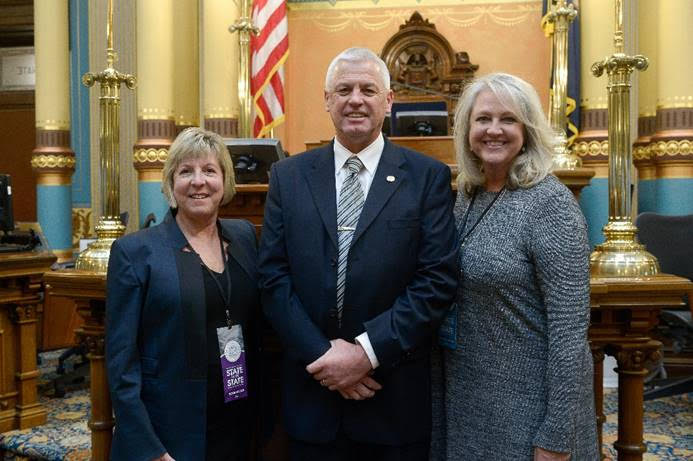 State Sen. Jon Bumstead welcomed Cindy Larsen (left) and Amy VanLoon (right) to Lansing Wednesday as his guests for Gov. Gretchen Whitmer’s 2020 State of the State address. Larsen serves as president of the Muskegon Lakeshore Chamber of Commerce and VanLoon serves as executive director of the White Lake Area Chamber of Commerce. A step backward for Michigan
By Sen. Jon Bumstead As I sat and listened to the governor’s speech Wednesday evening, I found myself agreeing with some of the things she called for, while finding concerns with some of her plans. I join her in her calls for funding our schools and making sure our kids have the opportunity to receive a quality education, while also having the options to make a sound career choice that works for them. Last year, the Legislature approved a budget that increased per-pupil funding as well as options available for those who wish to pursue a career in the trades. In order to further increase avenues for student success, I introduced legislation that will give kids additional options when choosing courses as they prepare for their life ahead. My legislation would put coursework and curriculum decisions back in the hands of local districts. Specifically, the bills would eliminate certain graduation requirements and give students the chance to take other classes that might better prepare them for their future. I hope I can count on her support. I also found myself sharing many of the governor’s concerns about things like clean water and our environment. Michigan has led the nation in measures to remediate ongoing PFAS issues and spent a great deal of time and effort to ensure folks have safe drinking water. As chairman of the Department of Environment, Great Lakes, and Energy budget, I remain committed to these efforts and agree that this must continue to be a top priority. We must also continue to monitor the unfortunate situation currently facing the Great Lakes. Lawmakers must work to seek out efforts to mitigate the ongoing high water and erosion issues that impact our public infrastructure. I would have liked to see the governor speak more on her plans to help alleviate these problems in the future. I find it concerning for the governor to admit that she is going around the Legislature, the traditional avenue for funding measures, to plunge the state into over $3.5 billion of debt. Since 2015 the Legislature has pumped additional money into road and infrastructure repairs, and even included additional funding in this year’s budget prior to it being vetoed. There have been several discussions on how we can repurpose existing resources without increasing taxes or borrowing against future generations, and I would much prefer seeing those plans come to fruition. Less than 24 hours after her speech, the Michigan Department of Transportation was given the authority to sell bonds as her plan to force Michigan into an uncertain, expensive future went into effect. I join my colleagues in having strong reservations about this as an avenue for fixing Michigan’s roads. The governor’s plan largely focuses on southeast Michigan and does nothing to address funding for local roads in my district, despite sticking taxpayers in my district with the bill. Additionally, the Legislature spent the last 10 years paying down debts exactly like the one the governor just committed Michigan to for the next nearly three decades. The state is still paying off bonds from the Gov. Engler era. I find it hard to get behind passing the buck to our kids as the best approach. I will continue working with my colleagues on both sides of the aisle to fund our schools, improve drinking water and the environment and look at ways we can make meaningful repairs to our infrastructure. I look forward to the governor’s upcoming budget presentation and working with her administration to get a budget done on time and continuing efforts to make Michigan a better place to live and do business. Sen. Jon Bumstead, R-Newaygo, represents the 34th state Senate District, which includes Muskegon, Newaygo and Oceana counties. |
Letter to the Editor PolicyNear North Now welcomes original letters from readers on current topics of general interest. Simply fill out the form below. Letters submissions are limited to 300 words. Archives
July 2024
Categories |
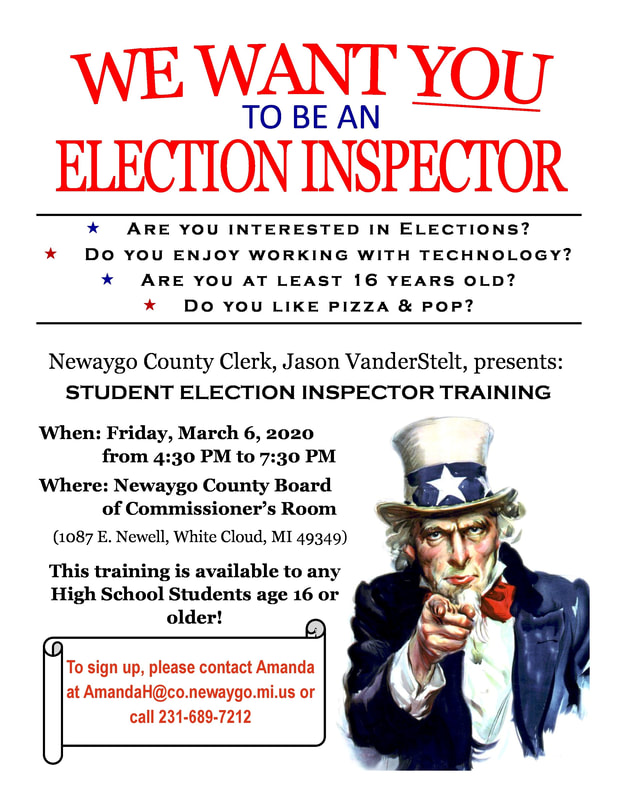
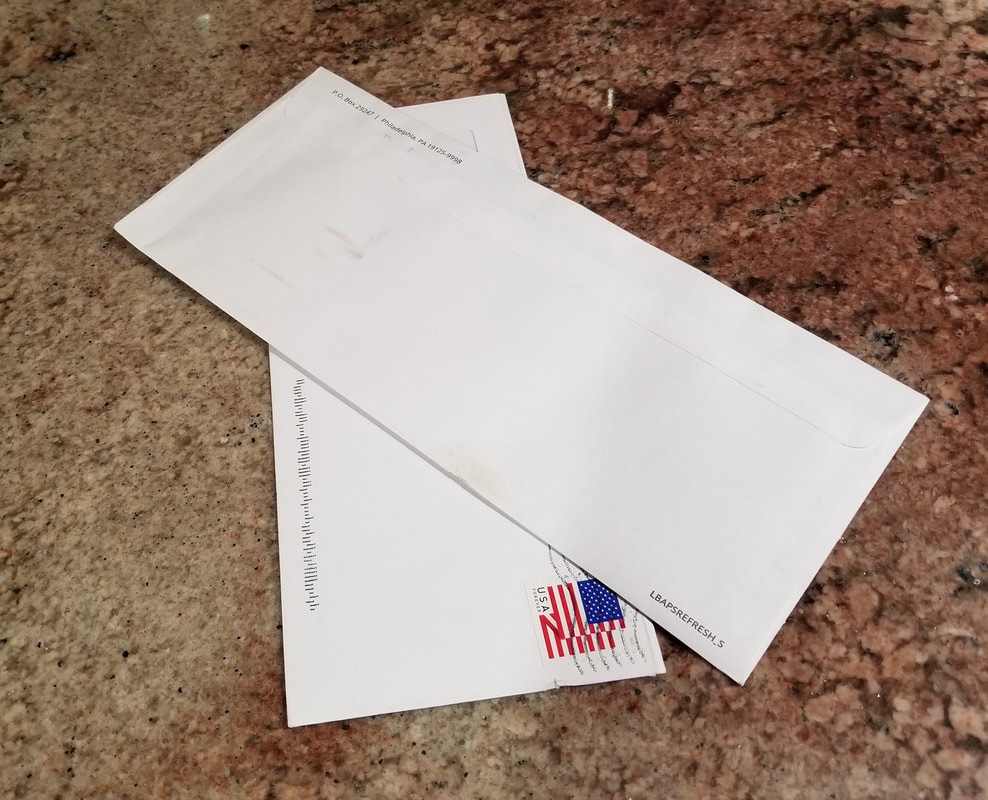
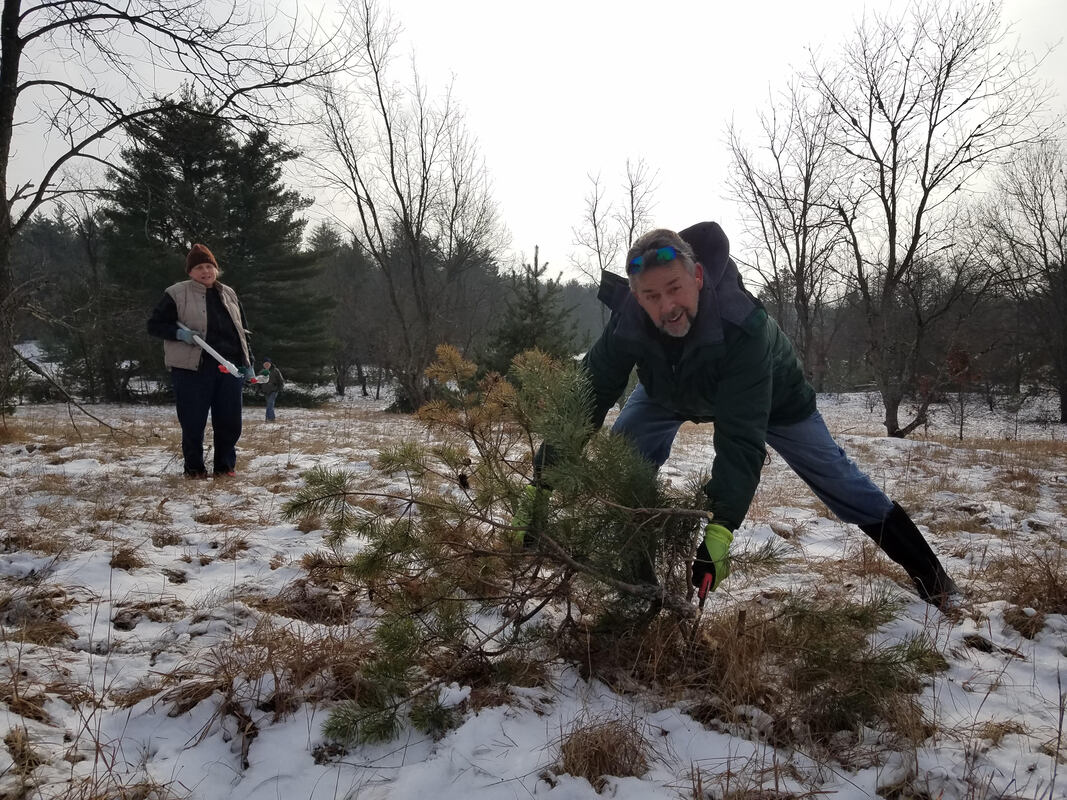

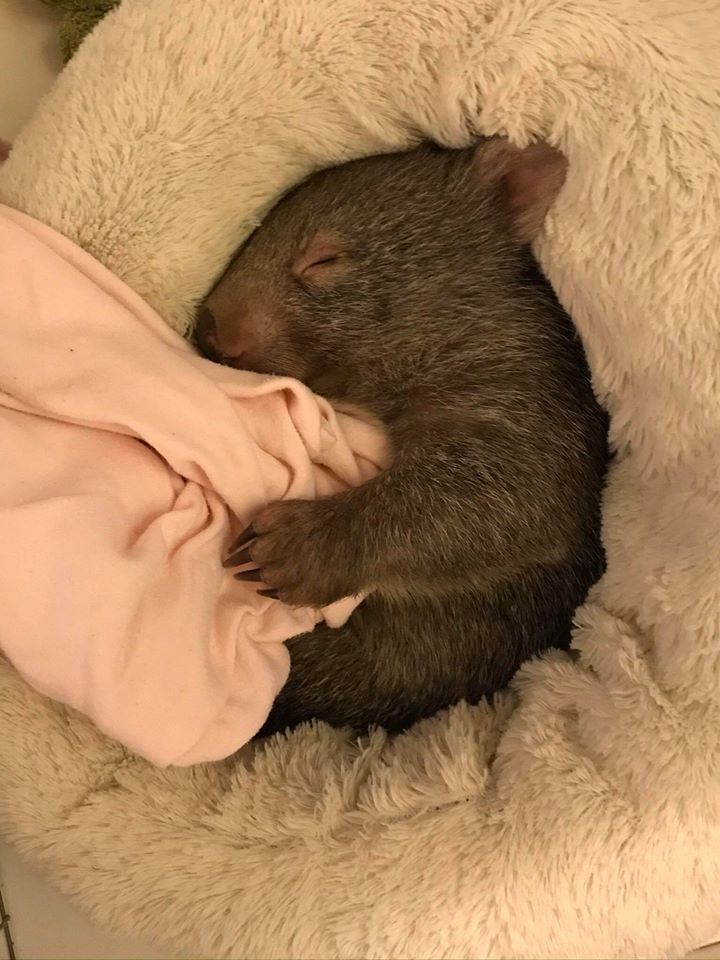
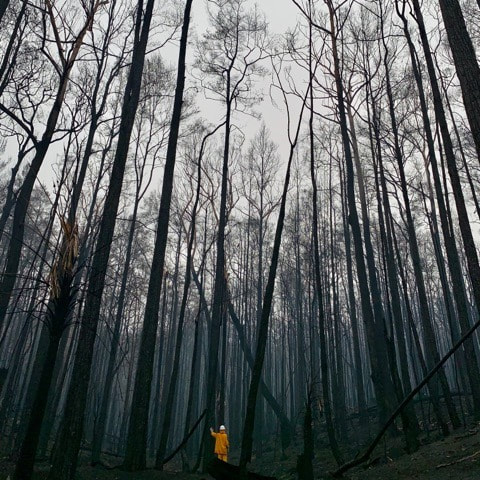
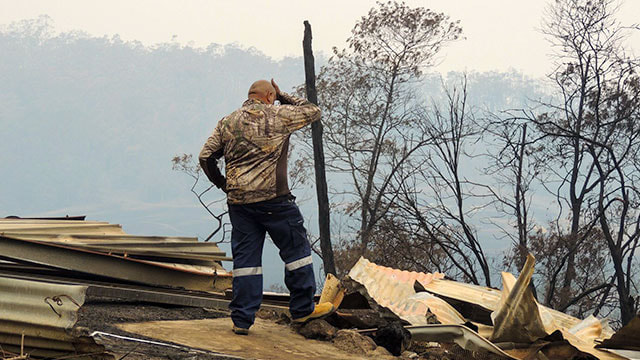

 RSS Feed
RSS Feed